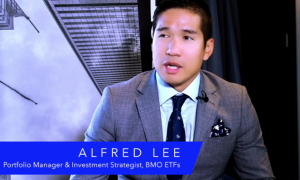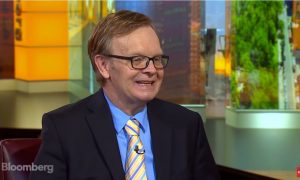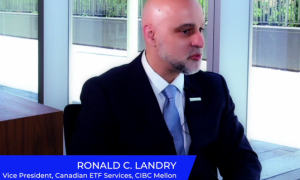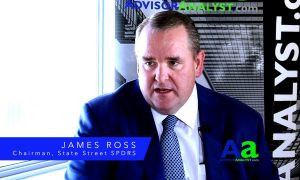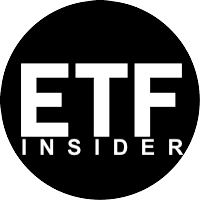by Franklin Templeton Investments blog, Franklin Templeton Investments
Global equities were stronger last week as further dovishness from central banks provided support. Focus also shifted to the upcoming meeting between US President Donald Trump and his Chinese counterpart Xi Jinping at the G20 summit later this week. The euro ended the week largely flat despite some dovish commentary from European Central Bank (ECB) president Mario Draghi. The dollar was weaker amid strong market expectations of a US Federal Reserve (US Fed) interest rate cut in July. That move in the dollar supported commodities through the latter half of last week.
The Digest
Enter the Draghi
 Dovish central banks have been a market theme for us for a few weeks now. That continued last week with the ECB, the US Fed, the Bank of Japan (BOJ) and the Bank of England (BOE) all in focus.
Dovish central banks have been a market theme for us for a few weeks now. That continued last week with the ECB, the US Fed, the Bank of Japan (BOJ) and the Bank of England (BOE) all in focus.
The ECB conference in Sintra, Portugal, was the focus for us in Europe. Hopes of European economic growth remain hindered by continued weak data points across the region.
At the start of the year, the market put the probability of a eurozone interest rate hike by the end of the year at just under 25%. Within six months market opinion had shifted in favour of a further interest rate cut. After last week’s ECB meeting the market is now pricing in an 85% chance of a cut this year.
Draghi stated that the central bank would do whatever it deemed appropriate to fulfil its mandate. He added the current policy framework allowed the bank “to adapt our forward guidance and react flexibly as the macroeconomic situation evolves”.
Naturally, Draghi’s comments were taken as dovish by the markets. They were also taken as confirmation that the ECB accepts its role in supporting the lagging eurozone via shifts in monetary policy.
The only question left was: with what conviction? Draghi’s perceived willingness to act made the markets sit up and take note. The ECB has a number of options in its toolkit. Alterations to forward guidance, rate cuts and further quantitative easing are all possible measures it could take. We expect the June flash eurozone inflation estimate on June 28 will be watched closely by the ECB.
Eurozone equities rallied on the back of the ECB president’s comment, while the euro fell slightly. Unsurprisingly, the banks were the initial underperformer versus the market, but rallied later on Tuesday.
Utilities led the way for most of the day on Tuesday as bond proxies were strong after a further dip in bond yields. Italian 10-year government bond yields were down 8% on the day, while German bund yields hit a fresh record low.
US Gears for Expected Rate Cut in July

In the United States, the market had been quite clear in it did not expect a Fed interest rate cut in June. However, sentiment is now heavily weighted towards a cut at the July meeting. US equities have rallied of late on the expectation that this cut will materialize.
Wednesday’s post-meeting Fed commentary, once again, was dovish as the bank slightly updated its commentary wording.
While the bank kept interest rates on hold and made no change to its outlook on growth, it did cut inflation forecasts.
It seems trade tensions with China as well as consistently weak economic data points have made it impossible for the Fed to ignore the future impact on the country’s economic trajectory.
With a rate cut now pretty much certain, analysts are now focussing on the extent of the cut – whether it will be 0.25% or 0.50%.
Most economists favour 0.25%.
The dollar sold off into the end of the week. US equities extended Tuesday’s rally through Wednesday and into Thursday.
Bank of England Holds Rates
Elsewhere, on Thursday, the Bank of England kept interest rates on hold at 0.75%. It did however revise down its economic growth prediction for the second quarter. They had previously projected growth of 0.2% in the second quarter but now predict growth will be flat. Sterling was down slightly but quickly recovered. Finally, also on Thursday, the Bank of Japan left short-term rates unchanged.
Trade optimism ahead of G20
 There was no breakthrough between the United States and China on any kind of trade deal last week. Meanwhile there were mixed expectations for the meeting between the US and Chinese presidents at the G20 meeting in Osaka this coming weekend.
There was no breakthrough between the United States and China on any kind of trade deal last week. Meanwhile there were mixed expectations for the meeting between the US and Chinese presidents at the G20 meeting in Osaka this coming weekend.
Last weekend, US Commerce Secretary Wilbur Ross had attempted to manage those expectations where he stated that the most we could hope for from the leaders’ meeting was simply an agreement from both sides to re-commence talks.
President Trump tweeted on Tuesday that he’d had a very good telephone conversation with President Xi and noted that they would have an “extended meeting” in Osaka.
Later in the week, we saw reports in Chinese state media which played down hopes for any resolution once again. Optimism remains however that progress can be made at this meeting to remove some of the uncertainty which has weighed on equity markets of late.
In terms of sector moves, tech names led the way in Asia and came a close second in the United States behind energy stocks as markets remained optimistic over a deal being struck.
There was a clear cyclical rotation in the US with moves into more risk equities. Industrials were up and traded back towards all-time highs.
Meanwhile, materials and consumer staples lagged on the week in the US, albeit still trading in positive territory.
In Asia, as noted, tech names were particularly strong on the week on optimism early on Wednesday that an agreement between the US and China could be reached. The cyclical rotation was clear here too with utilities, consumer staples and healthcare the underperforming sectors on the week, although all trading higher.
US/Iran escalation
 Geopolitical tension was back on the front pages this week as US relations with Iran caused shockwaves once again in the Middle East.
Geopolitical tension was back on the front pages this week as US relations with Iran caused shockwaves once again in the Middle East.
The previous week, the US officially announced that it suspected Iran was responsible for two attacks on oil tankers in the Gulf of Oman.
Around 20% of globally consumed crude oil passes through the Strait of Hormuz (which connects the Persian Gulf and the Gulf of Oman) so the importance of this sea passage is obvious.
The impact of these headlines on markets stems mainly from oil prices as they impact a strategically crucial region. Any potential disruption to supply in the Middle East will provide material support to oil prices and this comes despite demand for oil being particularly soft and subject to downgrades recently.
Over the weekend, the US announced it intends to introduce new tariffs on Iran with the objective of stopping Iran producing nuclear weapons. Secretary of State Mike Pompeo said such sanctions would be “significant”. These headlines were reflected in market moves in early trading on Monday with oil trading higher for much of the morning.
Last Week
Europe
European equities benefited from improved investor sentiment as Draghi’s dovish comments set the tone for the week. Italy outperformed, as talk of fresh ECB stimulus saw Italian bond yields tighten significantly. The spread between the Italian and German 10-year yields tightened back towards year-to-date lows.
In terms of European macro data, purchasing manager index data results were mixed. French June Flash Composite PMI came in ahead of estimates, as did the German Composite PMI. Despite this, the Eurozone release eventually came in lower than expected.
Americas
A backdrop of dovish central bank commentary and a rekindling of optimism on the US/China trade talks lifted US equities last week.
Asia
Asian equities enjoyed a better performance last week. Japanese equities underperformed the other major stock markets in the region, not helped by weaker data, although still managed to finish nearly in positive territory. Hong Kong had a good week, boosted by the rally in tech stocks on the back of hopes around US/China trade talks. Chinese equities were strong for the same reason.
Away from all the trade headlines, it was a quiet week in terms of macro data. There were a couple of rather disappointing prints out of Japan with manufacturing PMIs falling to a three-month low in June while core consumer price index (CPI) inflation edged lower in May.
Week Ahead
Politics
- The main focus this week will be the G20 leaders’ summit on Friday with all eyes on any progress on trade between the US and China.
- We also expect focus on headlines coming out of the Middle East, including new US sanctions on Iran, and the impact on oil prices.
Economics
- Tuesday: Japanese services producer price index (PPI); US consumer confidence and new home sales
- Wednesday: US durable goods orders and wholesale inventories
- Thursday: Chinese industrial profits; Japanese retail sales; Eurozone economic sentiment
- Friday: Japanese and Korean industrial production; US personal income/spending and Eurozone CPIs
Monetary Policy
- A number of Fed speakers are speaking this week, which should be interesting after last week’s Fed meeting
- In Europe, BOE governor Mark Carney speaks on Wednesday and the ECB’s governing council member Ewald Nowotny speaks on Thursday.
- Thailand and New Zealand interest rate announcements on Wednesday.
Views You Can Use
Insight from Our Investment Professionals
From Imitation to Innovation: Emerging Markets’ Technology Journey
Many investors have a view of emerging markets that remains stuck in the past, and that’s particularly true in the realm of technology. No longer simply copying advances made in the developed world, emerging market companies are now leading the way with growing research and development budgets and eye-catching innovations. Franklin Emerging Market Equity Group’s Chetan Sehgal and Andrew Ness offer their thoughts on this developing trend. Read More.
China’s Sci-Tech Board: Hope or Hype?
China will be launching a Nasdaq-style stock market for technology and research-driven companies to list and raise capital. While it has some detractors, Franklin Templeton Emerging Markets Equity believes this upcoming board is of strategic importance to China. Jason Zhu, director of portfolio management—China Equities, says it could rev up China’s emergence as a research powerhouse and help emerging companies grow into industry champions, but the team will be watching at least two key factors—the quality of companies listed and their valuations. Read More.
What’s Really Driving Oil Market Volatility?
Recent attacks on oil tankers in the Middle East have grabbed headlines and revived geopolitical fears. However, Franklin Equity Group’s Fred Fromm says other factors, namely global oil supply-demand dynamics, are more responsible for the bouts of oil market volatility we’ve seen this year. Read More.
US Fed in Tough Spot as Market Clamours for Rate Cuts
The US Federal Reserve kept interest rates steady at its June meeting; it also emphasised its data-driven approach to policy decisions but noted it believes the case for lower interest rates to be strengthening. Franklin Templeton Fixed Income CIO Sonal Desai offers her take on the meeting, and why the Fed might actually be exacerbating market volatility ahead. Read More.
For timely investing tidbits, follow us on Twitter @FTI_Global and on LinkedIn.
Important Legal Information
This article reflects the analysis and opinions of Franklin Templeton’s European Trading Desk as of June 24, 2019, and may vary from the analysis and opinions of other investment teams, platforms, portfolio managers or strategies at Franklin Templeton. Because market and economic conditions are often subject to rapid change, the analysis and opinions provided may change without notice. An assessment of a particular country, market, region, security, investment or strategy is not intended as an investment recommendation, nor does it constitute investment advice. Statements of fact are from sources considered reliable, but no representation or warranty is made as to their completeness or accuracy. This article does not provide a complete analysis of every material fact regarding any country, region, market, industry or security.
Nothing in this document may be relied upon as investment advice or an investment recommendation.
Data from third-party sources may have been used in the preparation of this material and Franklin Templeton (“FT”) has not independently verified, validated or audited such data. FT accepts no liability whatsoever for any loss arising from use of this information and reliance upon the comments, opinions and analyses in the material is at the sole discretion of the user. Products, services and information may not be available in all jurisdictions and are offered by FT affiliates and/or their distributors as local laws and regulations permit. Please consult your own professional adviser for further information on availability of products and services in your jurisdiction.
What Are the Risks?
All investments involve risk, including possible loss of principal. The value of investments can go down as well as up, and investors may not get back the full amount invested. Stock prices fluctuate, sometimes rapidly and dramatically, due to factors affecting individual companies, particular industries or sectors, or general market conditions. Bond prices generally move in the opposite direction of interest rates. Thus, as prices of bonds in an investment portfolio adjust to a rise in interest rates, the value of the portfolio may decline. Investments in foreign securities involve special risks including currency fluctuations, economic instability and political developments. Investments in developing markets involve heightened risks related to the same factors, in addition to those associated with their relatively small size and lesser liquidity.
Past performance is not an indicator or guarantee of future performance.
Links to External Sites
Franklin Templeton Investments is not responsible for the content of external websites.
The inclusion of a link to an external website should not be understood to be an endorsement of that website or the site’s owners (or their products/services).
Links can take you to third-party sites/media with information and services not reviewed or endorsed by us. We urge you to review the privacy, security, terms of use, and other policies of each site you visit as we have no control over, and assume no responsibility or liability for them.
Copyright © Franklin Templeton Investments







